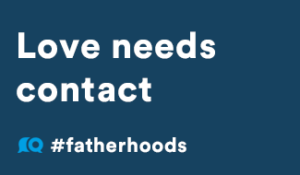When parents separate, children are inevitably affected. What is important to remember is that they should not be drawn into any adult conflict. However, this needs to be balanced with ensuring that they are listened to and kept informed to some degree about the plans which are going to be put in place for their care so that they do not feel too anxious about their own future.
Far too frequently, children can feel stuck in the middle of their parents as if they have to choose one or the other. Whilst it is important to engage with the children and listen to what they want, it is also vital to reassure them and ensure that they do not assume the weight of responsibility for decisions regarding their care.
Far too frequently, children can feel stuck in the middle of their parents as if they have to choose one or the other.
Child’s voice
A child’s ability to express their wishes and feelings accurately, with an understanding as to the implications of those wishes and feelings, depends on how old they are. Indeed, a court, when making a decision for a child,will apply the ‘welfare checklist’ found in Section 1(3) of the Children Act 1989, which states that wishes and feelings should be considered in light of the child’s age and understanding (see here for more information on the welfare checklist). What this means is that, for example, an older child within any court proceedings may be given more of an opportunity to write a letter to the Judge or to express their views than that afforded to a younger child because they are more able to understand the consequences of what they are communicating.
Practical steps you can take when deciding on where the child lives
By directly asking a child where they want to live, it is possible that this will put them in an unfair situation where they feelthey have to choose. It may be more appropriate, depending on their age, to have an open discussion with them as a family to invite and listen to their wishes and feelings rather than asking direct questions.
Cafcass, (Children and Family Court Advice and Support Service) provide guidance about how to listen to the child’s voice after separation – see here. Cafcass also provide a template parenting plan document, which may help separating parents to consider how best to approach discussions concerning the arrangements for the children.
Some parents also like to consider whether some form of family therapy is suitable to help guide parents and children through the emotional impact of a separation with practical plans also being established duringthe course of that therapy. Family mediation is another servicethat may assist parents. Within mediation you can discuss the arrangements for the children but also agree how best to talk to the children and listen to what they want.
Communication between parents
Ultimately, the majority of child arrangements cases that end up in court arise because there is a lack of communication between the parents. It is undoubtedly a difficult and stressful time for parents when separating but it is important to remember that the children must be protected; they love both as their parent and, whilst the parents are ultimately responsible for the decision as to where they live, they must feel listened to without being forced to choose.
Posted on June 6, 2019
















